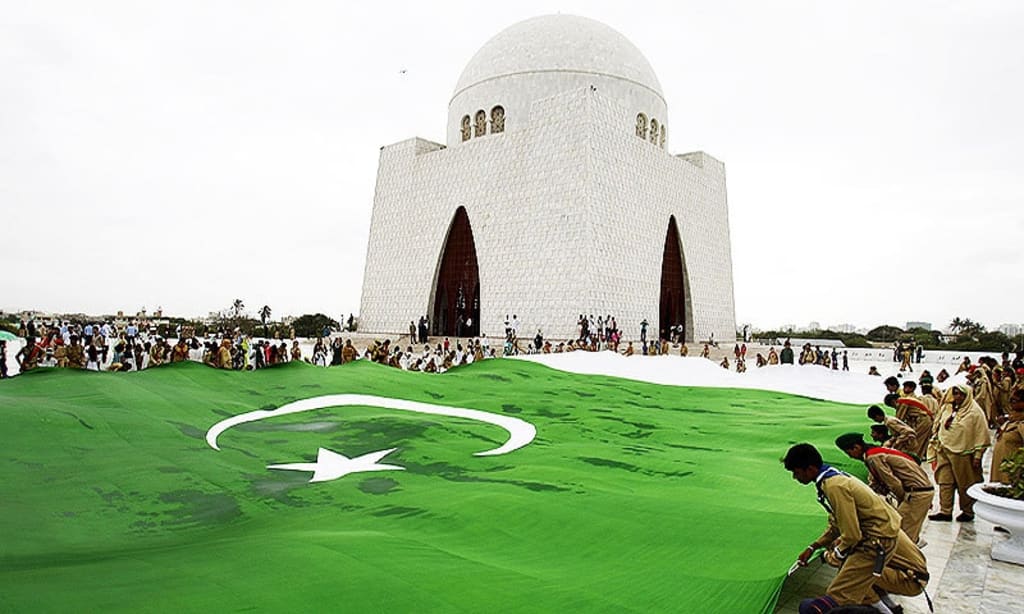The Complex Dynamics of U.S.-Pakistan Relations
A Historical and Political Analysis

Introduction:
The relationship between the United States and Pakistan, spanning over seven decades since the latter's independence in 1947, has been a tapestry of intricate interactions shaped by historical, political, and strategic considerations. While the U.S. was among the first nations to establish diplomatic ties with Pakistan and has been a significant source of foreign direct investment, the relationship has been characterized by tension, periodic discord, and evolving dynamics. This article aims to delve into the historical and political factors that have defined this complex relationship, examining recent developments, the U.S. stance, and media coverage, and highlighting the multifaceted nature of the animosity towards the U.S. in Pakistan.
Historical and Political Factors:
The historical trajectory of U.S.-Pakistan relations is deeply intertwined with the geopolitical landscape of South Asia. The U.S. has often been accused of treating Pakistan as a strategic tool rather than an equal partner, a perception rooted in the U.S.'s involvement in the region, particularly its role in the Afghan conflict. The use of drone strikes in Pakistan's tribal areas has further fueled tensions, with many viewing these actions as violations of Pakistan's sovereignty. These issues have contributed to anti-American sentiment within the country.
Despite being strategic allies during the Cold War, the relationship has faced challenges in the post-Cold War era. The shifting dynamics of global politics, coupled with Pakistan's own evolving strategic interests, have led to periods of strain. The accusations of using Pakistan as a mere tool for strategic gains have persisted, creating a backdrop of skepticism and mistrust.
Recent Developments:
The recent political developments in Pakistan, particularly the conviction of former Prime Minister Imran Khan on disputed corruption charges, have added a new layer of complexity to U.S.-Pakistan relations. Khan's removal from office via a parliamentary no-confidence vote marked a significant moment in Pakistan's political history. However, the aftermath witnessed widespread protests and the detention of thousands, raising concerns about the country's trajectory towards a more overt military police state.
These developments pose challenges for the U.S., requiring a careful assessment of its stance. While the U.S. maintains a neutral stance on political candidates or parties in Pakistan, reports of high-ranking State Department officials privately threatening isolation if Khan remained in power underscore the delicate balance the U.S. must strike in navigating Pakistani politics without explicitly endorsing or opposing specific leaders.
U.S. Stance:
Navigating the intricate political landscape of Pakistan, the U.S. has opted for a neutral stance on specific candidates or parties. Despite private diplomatic discussions, the U.S. officially refrains from overt interference in Pakistan's domestic politics. This delicate dance is essential to maintain a semblance of objectivity and respect for the sovereignty of the Pakistani state.
Media Coverage:
The role of the American news media in shaping perceptions of Pakistan cannot be ignored. Criticized for its portrayal of the nation and its perceived alignment with U.S. foreign policy, media coverage has the potential to influence public opinion. The negative portrayal of Pakistan may contribute to the animosity towards the U.S., as it is perceived as shaping a biased narrative that overlooks the nuances of the complex U.S.-Pakistan relationship.
Conclusion:
In conclusion, the animosity towards the U.S. in Pakistan is a multifaceted issue shaped by historical events, political developments, and cultural differences. The recent political upheaval in Pakistan adds a new dimension to this complex relationship, testing the diplomatic acumen of both nations. Understanding the intricate dynamics and acknowledging the diversity of public sentiment within Pakistan is crucial for fostering better relations between the two nations. As geopolitical landscapes continue to evolve, addressing the root causes of tension and finding common ground will be essential for building a more stable and collaborative future.






Comments
There are no comments for this story
Be the first to respond and start the conversation.